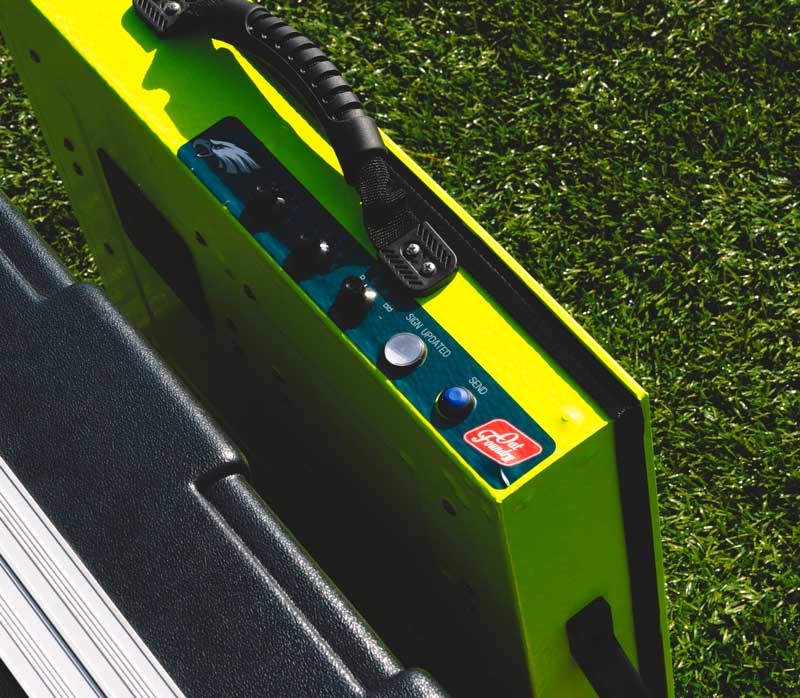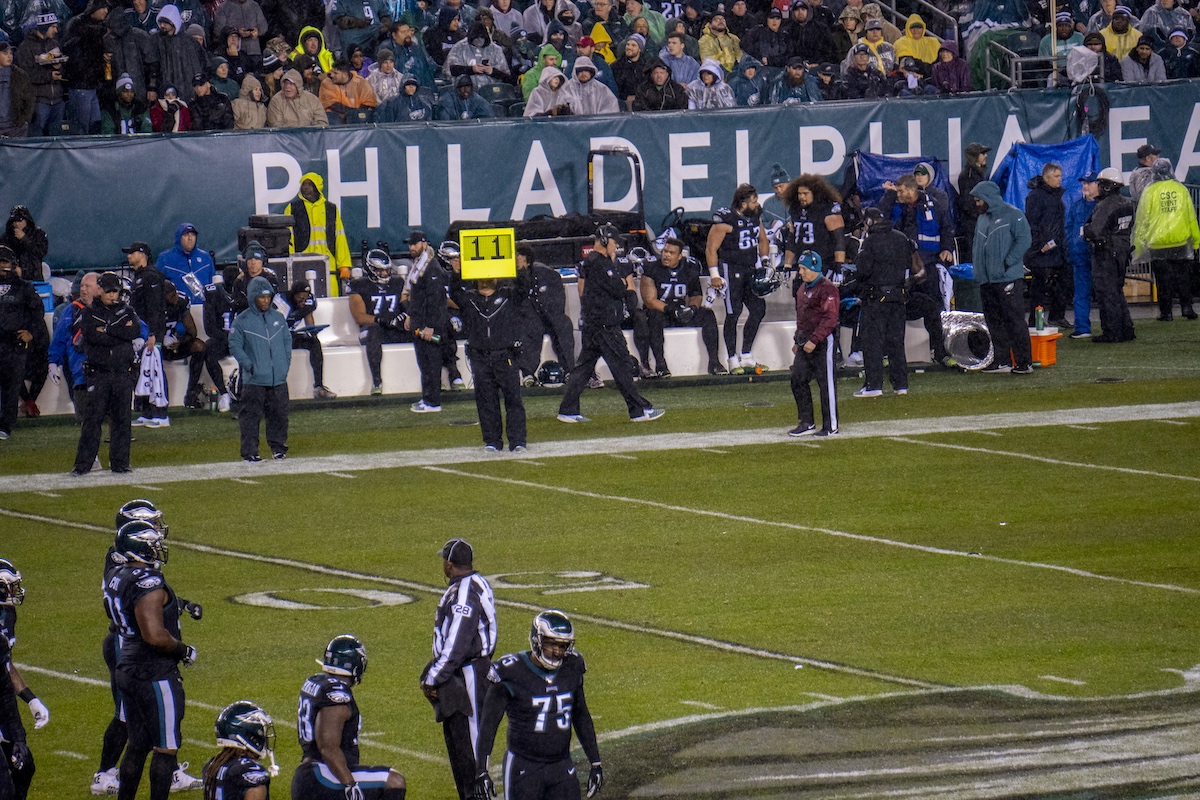How does the mastermind of a Super Bowl-winning defense improve his process? Technology, of course.
Philadelphia Eagles Defensive Coordinator Jim Schwarz wanted to speed up the way he called plays during games. Bridesburg-based Oat Foundry worked closely with him and other Eagles personnel to solve that problem with the help of some unique hardware and an efficient feedback loop.
After Schwarz shared his ideas about finding a different play-calling model with the Eagles, the football organization reached out to the engineering design company to set up a meeting, Oat Foundry Project Manager Sarah Van Bemmel told Technical.ly.
“I think some people from the Eagles saw our split flap signs around Philly and that they would be good solutions,” she said. “Our Fast Box model has all of the same characters that you can flip through. [We] brought in a picture flap module and they saw it and liked it.”
The only issue the Eagles had was the weight of the model Oat Foundry showed them in their meeting: The box would need to be light for coaches on sidelines to easily carry.
In searching for ways to create a lighter Fast Box model, the Oat Foundry team began to consider thinner electromagnetic solutions and looked at bus and train roller signs for inspiration. They eventually found that pixels worked better for better for the Eagles’ many defensive play combinations.
In thinking about how coaches at various levels of football called plays, Oat Foundry Marketing Director Jeff Nowak found an interesting case study in college football. NCAA defensive coordinators have relied upon a quirky system of play calling for years. Coaches would send signals to defensive players on the field using large play cards with images of celebrities, random objects and in recent years, popular internet memes.
The unusual images succeeded in conveying messages during games that only members of the same team would understand. But Nowak found in going through highlight reels that assistant coaches would sometimes use as many as 50 different cards in game that would become worn out and old and need to be replaced. Creating a more efficient way of play calling that was easier to manage could help coaches tremendously.
Nowak said the Oat Foundry team enjoyed working on the project because of the regular feedback Eagles personnel shared, which he believes helped create a better product. Coaches and Eagles personnel frequently offered their insights after playing games — so the feedback was based on experience, as opposed to the research of a focus group based on theory. Working closely with the Eagles organization also helped Oat Foundry navigate the long list of NFL compliance rules and restrictions that the design firm was unfamiliar with before creating Fast Box.

Fast Box, featuring familiar logos. (Courtesy photo)
The Eagles began using prototypes of the Fast Box in the 2019 preseason. Because NFL games happen in varying weather conditions, Van Bemmel and her team created a weatherproof model made out of aluminum. That model was more durable but too heavy for assistant coaches to carry around on sidelines, so Oat Foundry subsequently created a carbon fiber model that better met the team’s needs.
The Fast Box model that the Eagles use is customized for their defense, but Nowak said other teams and organizations interested in creating their own models can reach out to Oat Foundry.
While it’s still unclear what the NFL’s 2020 season will look like, the Eagles defense has implemented Fast Box into its strategy and will continue to use the play-calling technology when the season begins, according to the Oat Foundry team.
Michael Butler is a 2020-2022 corps member for Report for America, an initiative of The Groundtruth Project that pairs young journalists with local newsrooms. This position is supported by the Lenfest Institute for Journalism.Before you go...
Please consider supporting Technical.ly to keep our independent journalism strong. Unlike most business-focused media outlets, we don’t have a paywall. Instead, we count on your personal and organizational support.
Join our growing Slack community
Join 5,000 tech professionals and entrepreneurs in our community Slack today!

The person charged in the UnitedHealthcare CEO shooting had a ton of tech connections

The looming TikTok ban doesn’t strike financial fear into the hearts of creators — it’s community they’re worried about

Where are the country’s most vibrant tech and startup communities?


